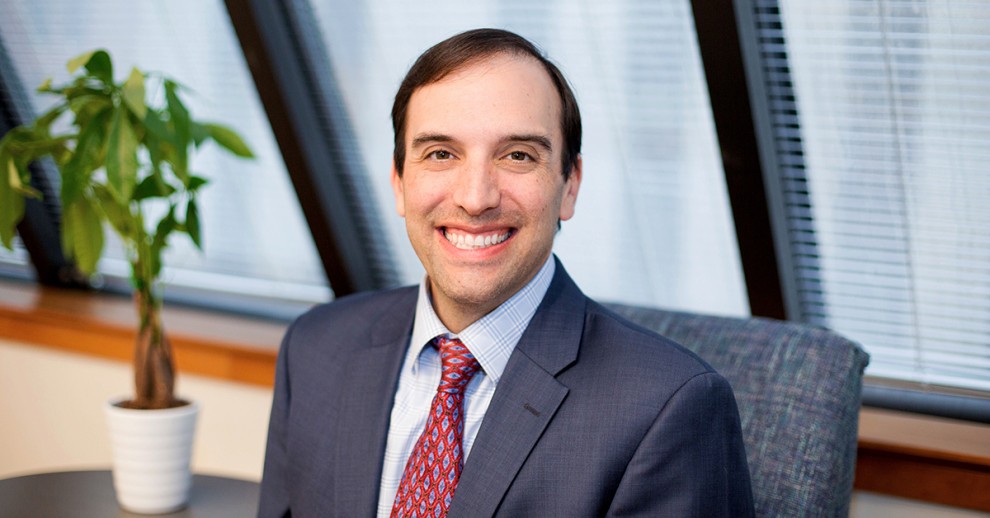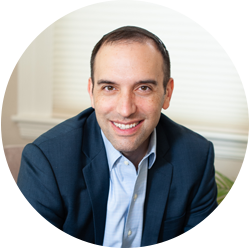
Shalom Chaverim,
Over the past couple of months my listening tour, The 360Five, has picked up steam, including three geographically-based community meetings (Cambridge, Canton, and Brookline) and many additional, smaller meetings in different settings. In the coming months, I look forward to writing about what I’m learning and, hopefully, to seeing many of you in person.
In the meantime, I want to share a beautiful moment that occurred at a recent conversation, one that took place in the intimate setting of a living room. This was a gathering of past CJP volunteer-leaders, most of whom have also been actively involved with other Greater Boston Jewish and non-Jewish organizations.
When I asked the group where they find meaning and connection in Jewish life, one participant responded with a personal story. It can be difficult to find one’s way into Greater Boston’s tight-knit, intergenerational Jewish communities, and she recalled moving to Boston decades ago having grown up in a different city.
She smiled and looked across the room at another participant, the “wise elder” in the room, who has been a leader in our community for well over 30 years. “I’ll never forget attending my first event and not knowing anyone,” she said. “I felt like an outsider. And you saw me. You welcomed me and introduced me to people, and I have been deeply connected ever since. You made me feel like I belonged.”
Knowing this person and how many others she has welcomed and mentored over the years, it was illuminating to learn that she is carrying on a legacy that she herself experienced decades ago as a newcomer to our community. This beautiful moment of “intergenerational” appreciation and transmission of values unfolded right in front of us.
As I reflect on this story of welcoming and connecting, I’m struck by the fact that it began with seeing: “You saw me.” It reminds me of the story of Moses’ encounter with God at the burning bush, which we will read this Shabbat as we begin the Book of Exodus:
“[Moses was out tending his father-in-law’s sheep in the wilderness when...] An angel of God appeared to [was seen by] him in a blazing fire out of a bush. And Moses gazed [saw] and there was a bush aflame, yet the bush was not consumed. Moses said, ‘I must turn aside to look at [see] this marvelous sight ... When God saw that he had turned aside to look [see], God called to him out of the bush: ‘Moses, Moses’ ... ” (Exodus 3:1-4)
In this passage the Hebrew word for seeing appears five times in just four lines! The Torah seems to be telling us that seeing is a key to understanding this encounter and the calling that would set in motion the redemption of our People. Some commentators wonder: how many others walked by that miraculous burning bush and didn’t notice it? But, Moses noticed it, turned aside, looked more carefully, and really saw it. Perhaps it was this quality of being able to see something that so many others missed that made him worthy of God’s calling, and of becoming our teacher and our leader.
The capacity to see is both a spiritual quality and an ethical one. It enables us to feel wonder, and it drives us to act with care and compassion toward one another, especially those who too often go unseen. This is how we create a caring, welcoming, inclusive community, and this is something that every one of us can practice, every day.
Wishing you a happy, healthy 2019 of seeing and being seen.
Shabbat Shalom,
Rabbi Marc Baker
If you'd like to sign up for my biweekly messages, don’t forget to sign up here.

About the Author
CJP President and CEO Rabbi Marc Baker is an educator, writer, and leadership mentor who is devoting his life to Jewish learning and building Jewish communities.
